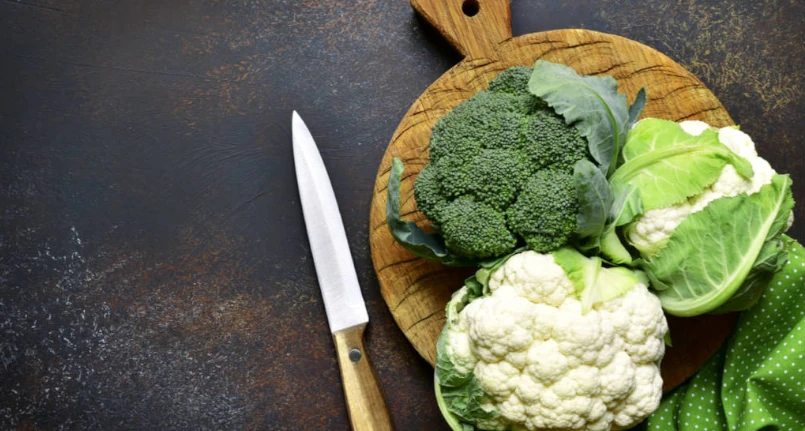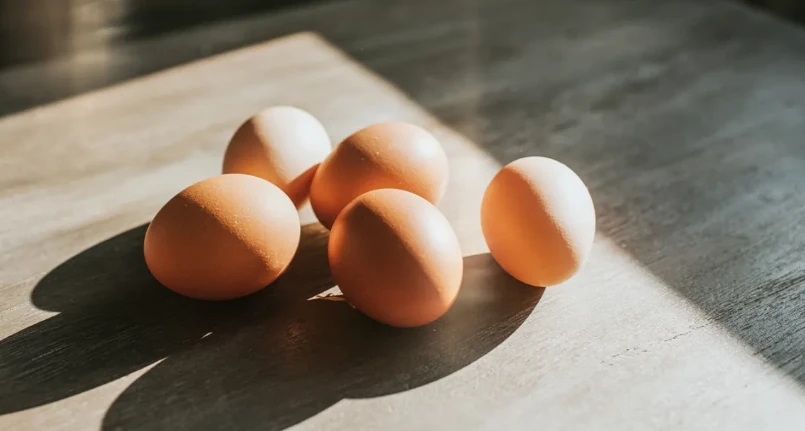Introduction
Cauliflower and broccoli — along with other vegetables , including Brussels sprouts and collard greens — are part of the cruciferous vegetable family . Both broccoli and cauliflower offer nutritional value and share some nutritional benefits, although broccoli offers a higher vitamin content-
Comparison between broccoli and cauliflower
Cauliflower and broccoli are both low – calorie vegetables : they offer 25 and 35 calories per 100g, respectively. Both foods contain beneficial folate, a nutrient the body needs to build red blood cells , as well as manganese , a mineral that helps strengthen bones and support the production of sex hormones . A serving of broccoli or cauliflower provides about 10% of the Daily Value for manganese and 15% for folate. They contain glycosinolates, a family of nutrients that reduce the risk of cancer . Eat broccoli or cauliflowerit also increases the intake of fibers and proteins useful for the body.
Properties of cauliflower
Cauliflower is a vegetable with a high content of antioxidants (including sulforaphane , chlorophyll, etc.). Contains good amounts of potassium, dietary fiber , satiating component , preventive and therapeutic against constipation. It is an ideal vegetable in a dietary diet because it is a food with little fat (mainly unsaturated ) and few carbohydrates (simple and complex). It is able to modulate the glycemic index and reduce cholesterol . The purinescontained in cauliflower make it better to exclude it from the preventive diet of hyperuricemia and gout .
Properties of broccoli
Broccoli is a vegetable that contains high amounts of vitamin C ( ascorbic acid ) and β-carotene (retinol eq. – pro-vitamin A ); of phenolic substances ( polyphenols ); of sulforaphane (generally beneficial substance, anti-aging and strongly antioxidant ) and of chlorophyll (antioxidant). Broccoli (better if eaten raw) is a food that boasts anti – tumor characteristics . Broccoli is rich in magnesium , phosphorus and iron , and are also a good source of fiber, useful for glycidic absorption, as a prebiotic and for reducing cholesterol absorption .
Anti-tumor glucosinates
Glucosinolates are sulfur- containing compounds that give cauliflower its characteristic pungent odor and flavor . Glucosinolates activate the body’s detoxification system . Chewing breaks down glucosinolates into their active form, which triggers the detoxification process. Research suggests they may play a role in prevention for various types of cancer. Cauliflower contains the second highest amount of glucosinolates, after broccoli.
| FOR 100 G | CAULIFLOWERS | BROCCOLI | |
| Calories | 25 | 35 | kcal |
| Calories | 104 | 141 | kj |
| Fats | 0.28 | 0.37 | g |
| Carbohydrates | 4.97 | 6.64 | g |
| Protein | 1.92 | 2.82 | g |
| fibers | 2 | 2.6 | g |
| Sugars | 1.91 | 1.7 | g |
| Waterfall | 92.07 | 89.3 | g |
| Starch | g | ||
| Ashes | 0.76 | 0.87 | g |
| Minerals | |||
| Soccer | 22 | 47 | mg |
| Sodium | 30 | 33 | mg |
| Phosphorus | 44 | 66 | mg |
| Potassium | 299 | 316 | mg |
| Iron | 0.42 | 0.73 | mg |
| Magnesium | 15 | 21 | mg |
| Zinc | 0.27 | 0.41 | mg |
| Copper | 0.039 | 0.049 | mg |
| Fluorine | 1 | mcg | |
| Manganese | 0.155 | 0.21 | mg |
| Selenium | 0.6 | 2.5 | mcg |
| Vitamins |
Vitamin content
C vitamin.
Both broccoli and cauliflower provide generous amounts of vitamin C, but broccoli provides more per serving. Vitamin C helps process fat , so it can be converted into energy and may play a role in cholesterol metabolism . It also helps produce norepinephrine , a chemical that affects mood, as well as collagen , a protein that strengthens connective tissue. Broccoli offers 81.2 milligrams of vitamin C per serving, compared to cauliflower’s 51.6 milligrams.
Vitamin K.
Broccoli offers a significant nutritional advantage over cauliflower when it comes to vitamin K content. Each serving offers 92.4 micrograms of vitamin K, which is the entire recommended daily intake for women and 74 percent of the recommended daily intake For the men. A serving of cauliflower, by contrast, contains only 16.6 micrograms of vitamin K. Vitamin K is beneficial for skin , cartilage and bone health , as well as for forming blood clots . Not getting enough vitamin K in your diet negatively affects your blood’s ability to clot , which leads to hemorrhagingnose , bruises and bleeding gums .
Vitamin A.
Choose broccoli over cauliflower to increase your vitamin A intake. Vitamin A supports immune function by keeping the skin strong, so it can prevent pathogens from entering the body, and by supporting white blood cell function . It also plays a key role in eye health .
Healthy cooking methods
Cooking cauliflower quickly reduces the sulfur odor, preserves freshness and color, and reduces nutrient loss . Steamed or microwaved cauliflower will preserve its vitamin content better than boiling.




